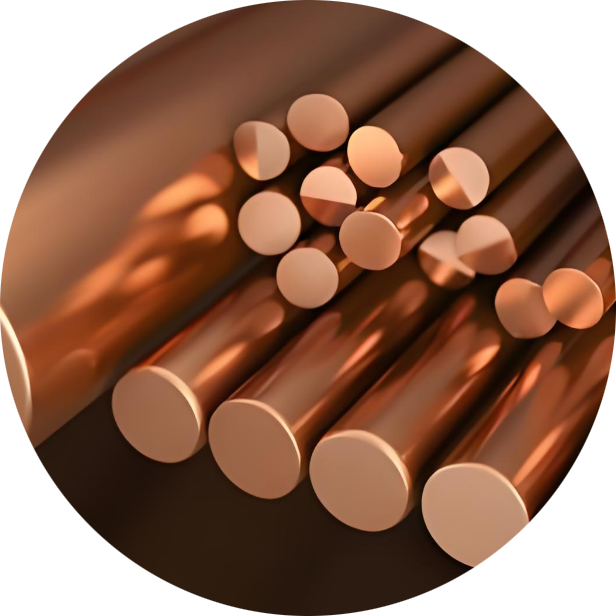Time to read: 6 min

Copper, with its exceptional electrical and thermal conductivity, stands out as an ideal material in the field of rapid prototyping. This article delves into the main properties of copper, its various grades, and its applications in the manufacturing process, providing a practical guide for selecting the appropriate copper material.
In the realm of rapid prototyping, copper material is favored for its versatility. Not only does copper possess excellent machinability, but its unique physical properties also make it suitable for a variety of applications.
Copper in Manufacturing Applications: Copper is a highly machinable metal with mechanical properties that have led to its widespread use in manufacturing. Its strength, hardness, superior thermal and heat conductivity, and corrosion resistance make it a material valued for both functional and aesthetic purposes. Additionally, copper's mechanical properties can be enhanced through alloying. Copper alloys are broadly categorized into three groups based on their machinability:
- High Machinability Copper Alloys (Machinability Rating 70 – 150%)
- Moderate Machinability Copper Alloys (Machinability Rating 30 – 60%)
- Low Machinability Copper Alloys (Machinability Rating less than 30%)
Properties of Copper: The diverse uses of copper are attributed to its unique properties, including immense strength, conductivity, and corrosion resistance. Here are some key properties of copper and their applications in rapid prototyping:
- Electrical Conductivity: One of copper's most notable properties is its electrical conductivity, which serves as a benchmark for measuring the conductivity of other metals.
- Thermal Conductivity: Copper's superior heat conductivity makes it an ideal material for electrical components, as it can dissipate heat generated during current flow.
- Ductility: Copper's high ductility allows it to be drawn into wires or pressed into sheets, making it versatile for various applications.
- Corrosion Resistance: As a non-reactive metal, copper is resistant to oxidation and corrosion, making it suitable for applications in fresh and seawater environments.
Advantages of Using Copper in Rapid Prototyping: Copper material offers numerous advantages in prototyping, including its corrosion resistance, ductility and malleability, recyclability, high level of conductivity, and relatively lower cost compared to other metals.
Different Grades of Copper for Rapid Prototyping: When selecting copper material for rapid prototyping, it's important to understand that properties can vary slightly with different grades or alloys. Here is detailed information on the six grades of copper used in rapid prototyping:
- Pure Coppers: Pure coppers are among the purest forms of copper with minimal impurities, known for their softness and high malleability.
- Oxygen-Free Coppers: These are the purest grades of copper, with a minimum of 99.99% copper content, and are renowned for their exceptional electrical and heat conductivity.
- Electrolytic Copper: Formed through electrolysis, this grade boasts 100% electrical conductivity and is highly workable for various processes.
- Copper-Nickel Alloys: These alloys improve mechanical properties such as strength and hardness with the addition of nickel, but may reduce ductility and machinability.
- Nickel Silver: Despite its name, this copper alloy contains no silver. It has a varying concentration of nickel, which enhances corrosion resistance at the expense of malleability.
- Free-Machining Coppers: These coppers are highly machinable and are commonly used in CNC machining and other rapid prototyping processes.
Conclusion: Copper's diverse properties make it an excellent choice for CNC machining. However, with the variety of grades available, selecting the best copper grade for your project can be challenging. This article introduces copper, its properties, grades, and how to choose the right grade. Is copper your material of choice for a machining project? At UnoFactory, we offer professional advice on material selection and a range of machining services tailored to different applications. We're here to help solve your machining challenges today.




